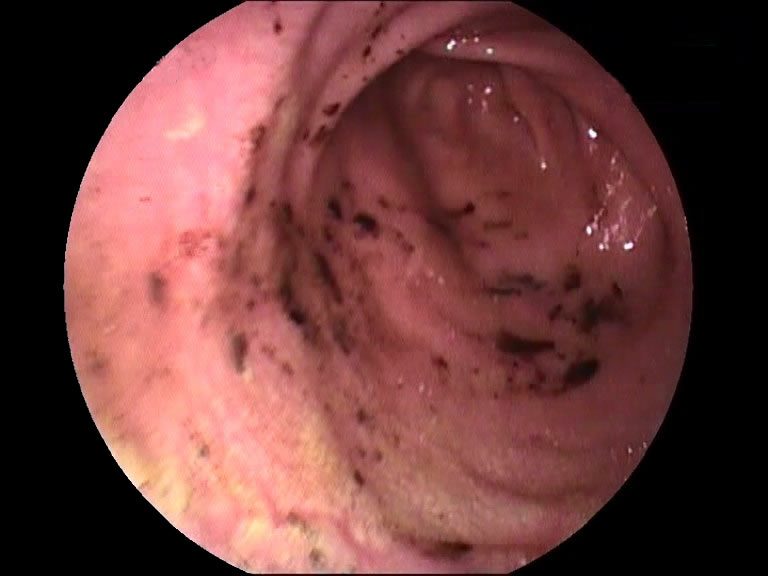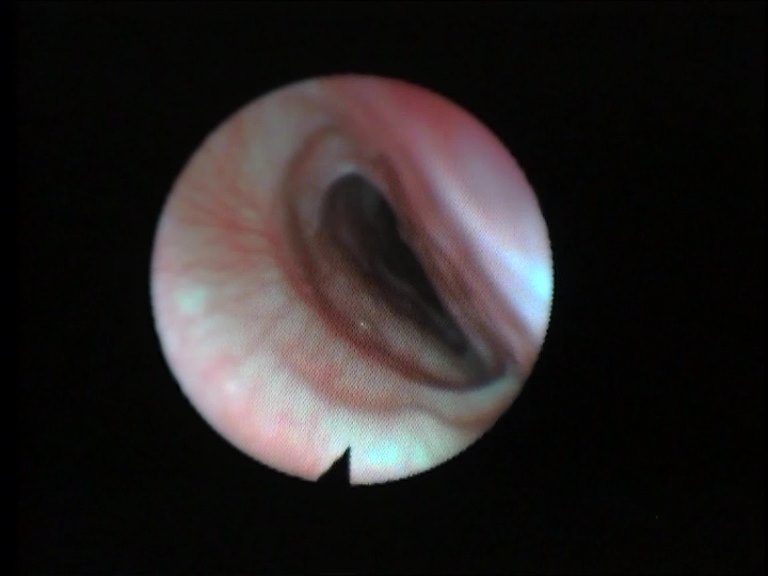Diagnostic and Therapeutic Endoscopy
Digestive endoscopy
Indicated in the diagnostic protocol of the patient with chronic vomiting or diarrhea, with weight loss or with oral or stool bleeding. It is also the technique of choice for object extraction (or foreign bodies) ingested by the animal that are in the esophagus or stomach. The exploration can be:
- Superior: complete study from the mouth to the first portion of the small intestine (esophagus-gastro-duodenoscopy)
- Inferior: complete study from the anus to the last portion of the small intestine (rectum-colono-ileoscopy)
- Combined: when both examinations are indicated in the same procedure.
Plus: all digestive diagnostic studies are accompanied by the biopsy sampling of each segment studied when there is no contraindication for it; percutaneous feeding systems can be placed for those animals with prolonged anorexia when their use is required.
Airway Endoscopy
Indicated in the diagnostic protocol of the nasal discharge, reverse sneeze, breath sounds or chronic cough. Also in cases of sharp cough where inhalation of a foreign body is suspected.
It consists of the study of the upper airways: Nasal Cavity, nasopharynx, larynx, trachea and main bronchi (rhinoscopy, laryngoscopy, traqueo-broncoscopia)
Plus: can be combined with biopsy sampling, cytology or bronchoalveolar lavage for the diagnosis of pathologies in deep tracts and with the removal of foreign bodies.
Endoscopic otoscopy
Indicated in the diagnosis and management of chronic otitis, in otitis media with or without perforation of the eardrum, in the diagnosis of masses in the middle ear. Also suitable for removal of foreign bodies when simple otoscopy has failed.
Plus: you can perform the middle ear sampling by puncture of an intact tympanic membrane or myringotomy; endoscopic otoscopy allows a complete washing and vacuuming of the ear, not comparable with other techniques and may be essential in the management of chronic otitis.
Vaginoscopy
Indicated in the case study of urinary incontinence, reproductive problems, chronic vulvar discharges.
Plus: some vaginal malformations can be corrected vaginally under endoscopic vision, avoiding other more aggressive surgeries; in selected patients we can perform intrauterine transcervical insemination
Lower urinary tract endoscopy (urethro-cystoscopy)
Indicated in the study of chronic bleeding (hematuria), recurrent infections or cystitis, diagnosis of congenital malformations.
Plus: can be accompanied by biopsies of bladder mucosa for histopathology or culture or removal of bladder stones
Endoscopy in exotics
We collaborate with fellow specialists in exotic and wild species to carry out various diagnostic or therapeutic studies.


